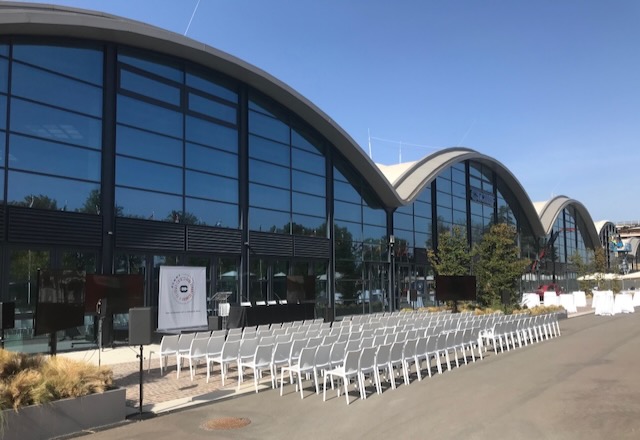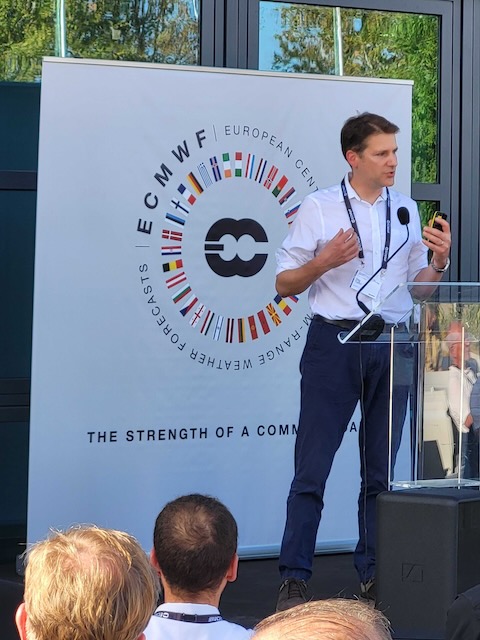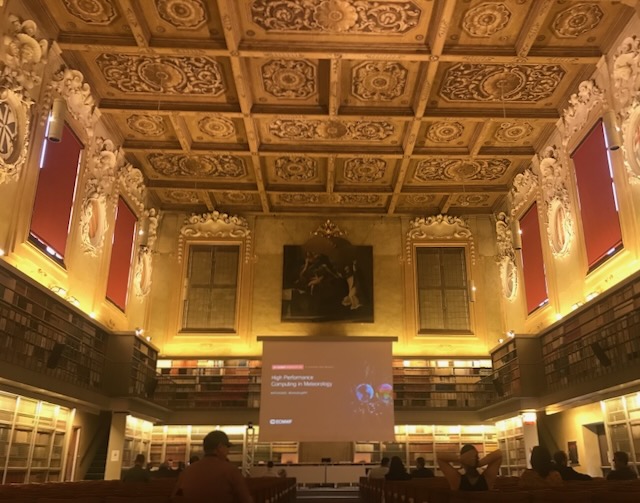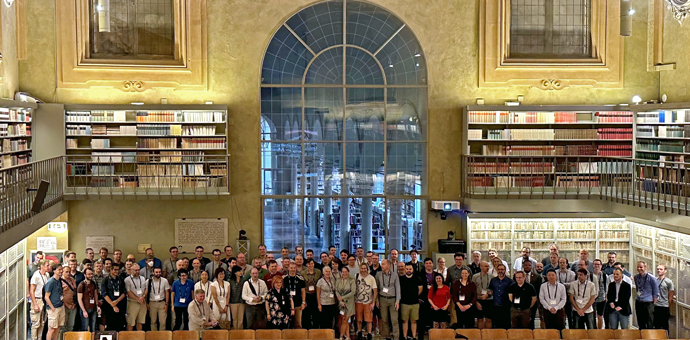For optimal reading, please switch to desktop mode.
Following the relocation of their data centre to Bologna, ECMWF this week hosted their first workshop on HPC and meteorology in the city, drawing participants from the weather and climate modelling community from around the world.

ECMWF ready for day 1
StackHPC is proud to have worked with the ECMWF team on the design and implementation of the European Weather Cloud, two production cloud infrastructures, built with OpenStack and Ceph and situated alongside the production HPC systems.
Stig was thrilled with the opportunity to present this work alongside the ECMWF team in the opening session of the event.

The remainder of the week's sessions took place in the centre of the old city of Bologna, in a monastery equipped with some inspirational settings.

Workshop Trends
For open infrastructure, four significant trends at the workshop stood out:
- The continued advance of machine learning (ML) within the weather prediction domain. Particularly notable was a presentation by Matthew Chantry of ECMWF of their research on the use of machine learning in generating forecasts and comparing the accuracy of AI models such as WeatherBench, Pangu-Weather and FourCastNet and with conventional Numerical Weather Prediction (NWP) models. The initial published work is surprisingly close, with inference costing a fraction of the computational load (training is another matter). Later in the week, an excellent keynote by Professor Torsten Hoefler presented various ways that AI/ML is improving the efficiency of numerical weather prediction methods bringing forecasting at greater precisions within reach.
- A candid and informative talk on the challenges facing federated computing in Destination Earth - familiar problems on which the project can hopefully draw upon the progress of previous EU research programmes.
- Several interesting updates on experiences with running numerical weather models on various forms of cloud infrastructure, with user stories led by Jeff Zais from NIWA in NZ and Cathal O'Brien from ECMWF and vendor presentations including Mike Kiernan from Azure and Timothy Brown from AWS.
- Pushing further into the cloud-native world was some enlightening work on data analysis in Kubernetes presented by Timothy Whitcomb from the US Naval Research Laboratory, and functions-as-a-service from Salvatore Pinto of EUMETSAT
In general the impression was of an evolving landscape ahead for weather forecasting and climate modelling, in which dramatic early findings for innovative approaches are already being demonstrated. As it heads into production, ECMWF's European Weather Cloud service is likely to find itself at the forefront of these activities.

(Image from ECMWF)
The full programme, presentations and recordings can be found here.
Get in touch
If you would like to get in touch we would love to hear from you. Reach out to us via Bluesky or directly via our contact page.